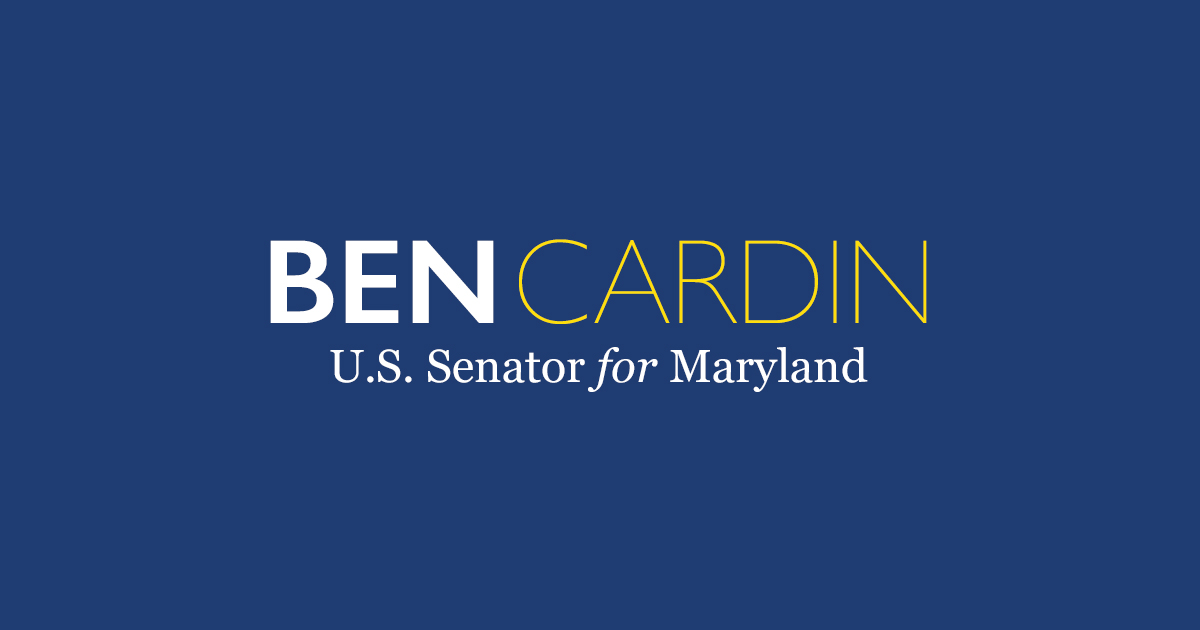Source: United States Senator for Maryland Ben Cardin
March 22, 2022
As critical deadline looms, bipartisan group of Members of Congress representing Chesapeake Bay states call on Administration to increase investment to reduce pollution from agriculture. New initiative would help local farmers restore the Bay, combat climate crisis
WASHINGTON – U.S. Senators Ben Cardin (D-Md.), Bob Casey (D-Pa.) and Chris Van Hollen (D-Md.), joined by 18 of their colleagues in the Senate and House of Representatives, sent a bipartisan letter to President Joe Biden urging the Administration to increase investment in the Chesapeake Bay watershed region in the President’s fiscal year 2023 budget proposal. The lawmakers ask the President to create a new Chesapeake Resilient Farms Initiative (CRFI), which would provide farmers with the resources they need to protect and restore the Chesapeake Bay by improving water quality, sequestering greenhouse gas emissions and improving on-farm resilience as the Bay states work towards 2025 pollution reduction goals.
“We know USDA conservation programs are effective when deployed at scale,” the Members of Congress wrote. “These voluntary, targeted federal investments would be matched by funds from states, NGOs or farmers receiving assistance. But without additional federal resources – for both practice implementation and technical assistance — we will not be able to reduce pollution levels consistent with the most recent Chesapeake Bay Watershed Agreement.”
The creation of a CRFI has earned the support of all of the state Agriculture Secretaries and Farm Bureaus in the Chesapeake Bay region. It would be modeled after the successful Mississippi River Basin Initiative, created in 2009.
Senators Cardin, Casey and Van Hollen led this effort with U.S. Representatives Bobby Scott (D-Va.-03), John Sarbanes (D-Md.-03), Rob Wittman (R-Va.-01) and Abigail Spanberger (D-Va.-07). They were joined on the letter by Senators Tom Carper (D-Del.), Mark Warner (D-Va.), Kirsten Gillibrand (D-N.Y.), Chris Coons (D-Del.) and Tim Kaine (D-Va.) as well as Representatives Andy Harris, M.D. (R-Md.-01), Gerry Connolly (D-Va.-11), Lisa Blunt Rochester (D-Del.-AL), Anthony Brown (D-Md.-04), Donald McEachin (D-Va.-04), Jamie Raskin (D-Md.-08), Susan Wild (D-Pa.-07), Elaine Luria (D-Va.-02) and Jennifer Wexton (D-Va.-10).
Full text of the letter is below and a signed copy can be found HERE.
March 21, 2022
The Honorable Joseph R. Biden, Jr.
President of the United States
The White House
1600 Pennsylvania Ave, NW
Washington, DC 20500
Dear President Biden:
As members of the Chesapeake Bay delegation, we request your Administration increase its investment in the Chesapeake Bay Watershed by initiating a Chesapeake Resilient Farms Initiative (CRFI) in your Fiscal Year 2023 President’s Budget Proposal.
For decades, our states, local governments and non-governmental organizations (NGOs) have partnered to restore and protect the Chesapeake Bay and its watershed. Now, we are approaching a critical 2025 deadline to ensure all necessary pollution control measures are in place to fully restore the Bay and its tributaries. Approximately 85 percent of the remaining pollution reductions must come from agriculture and forestry. Therefore, a core component of the effort to clean up the Bay must include increasing and targeting conservation assistance to farmers in the watershed.
As farmers continue to face challenging economic conditions, additional focus by the U.S. Department of Agriculture (USDA) is vital to accelerating conservation efforts in the Bay. Establishment of a regional initiative of this scale and for these purposes is not without precedent. CRFI would be modeled after the Mississippi River Basin Initiative, which was created in 2009 by USDA using existing authority. A newly created CRFI would target financial and technical assistance by focusing on the most effective basins for pollution reduction and prioritizing cost-effective practices that improve water quality, sequester greenhouse gas emissions and improve on-farm resiliency.
We know USDA conservation programs are effective when deployed at scale. These voluntary, targeted federal investments would be matched by funds from states, NGOs or farmers receiving assistance. But without additional federal resources – for both practice implementation and technical assistance — we will not be able to reduce pollution levels consistent with the most recent Chesapeake Bay Watershed Agreement.
Over the last several months, support has grown for the creation of CRFI, including through endorsements from all the state Agriculture Secretaries and Farm Bureaus in the Bay region. We are aligned in this effort to deliver clean water and healthy, resilient farms for the region and urge your support for the establishment of a Chesapeake Resilient Farms Initiative.
Thank you for your consideration of our request.
###
